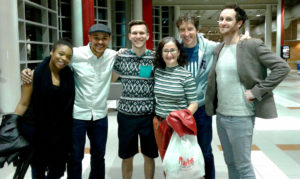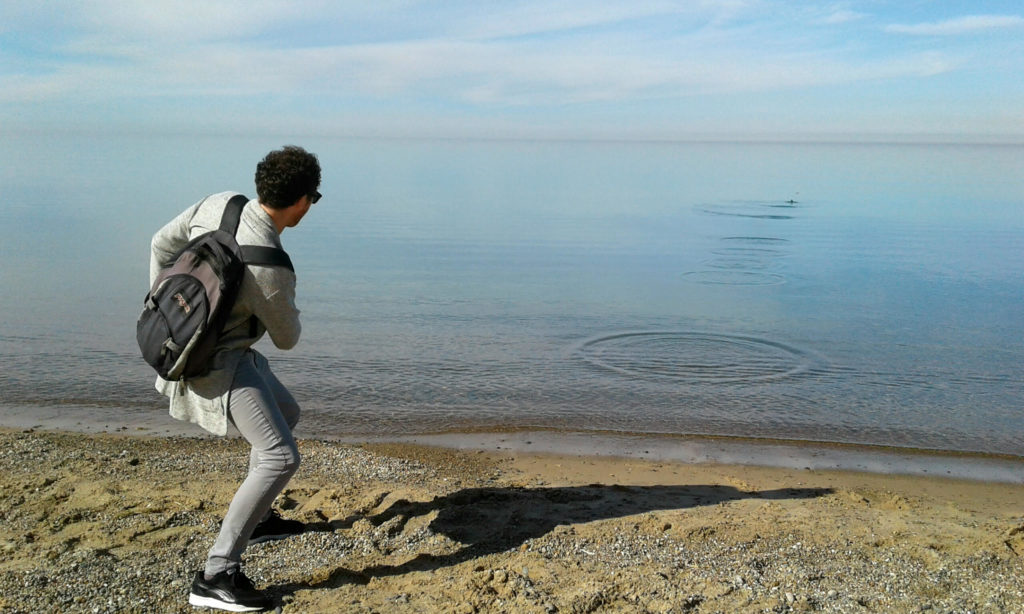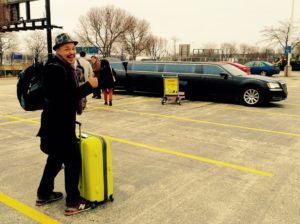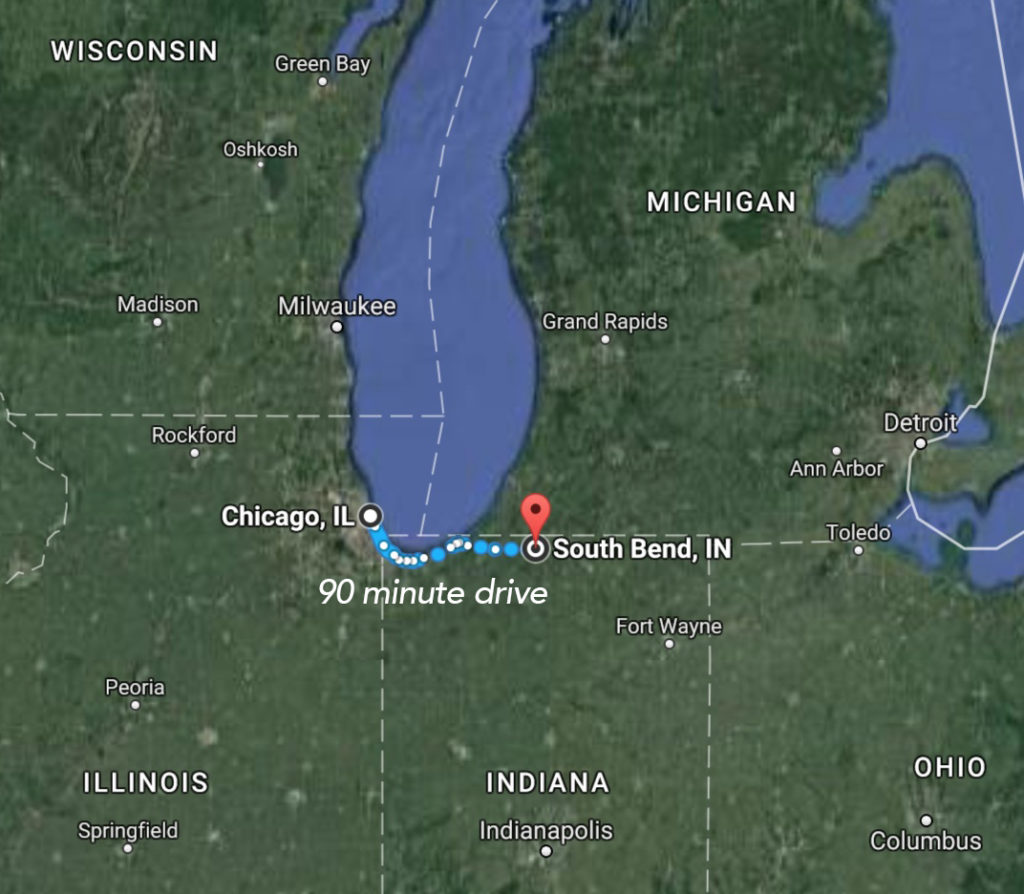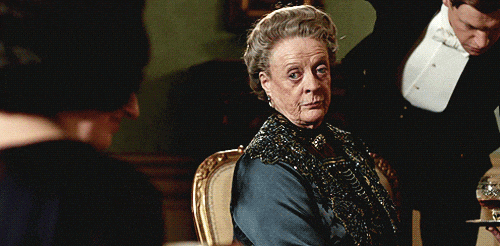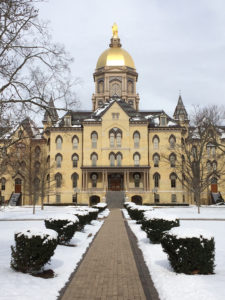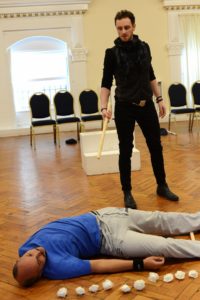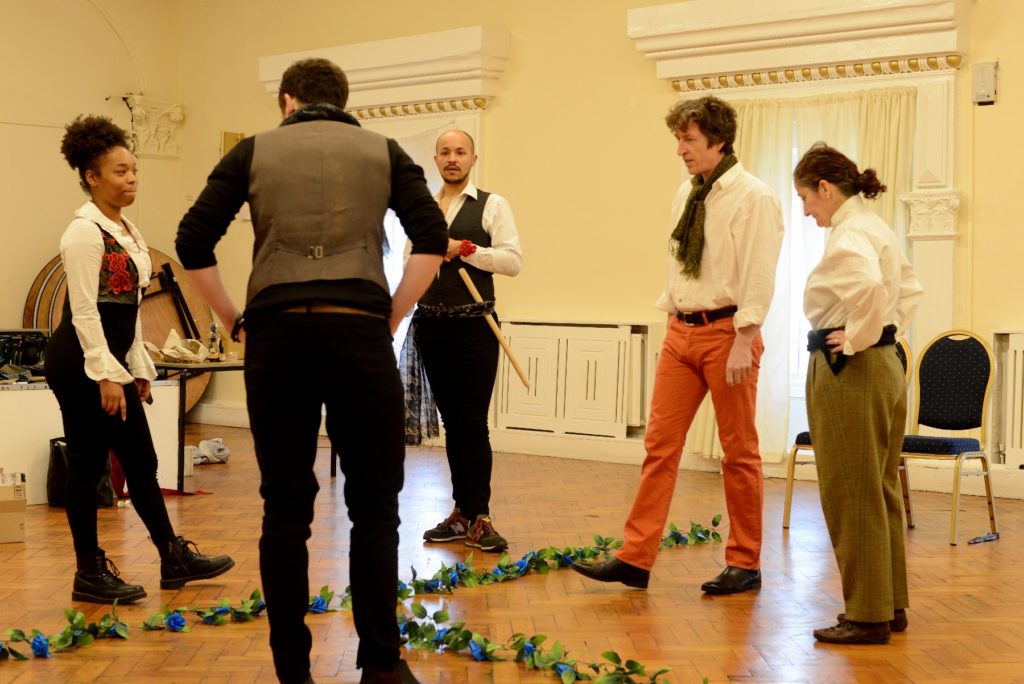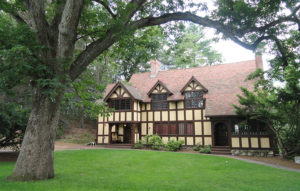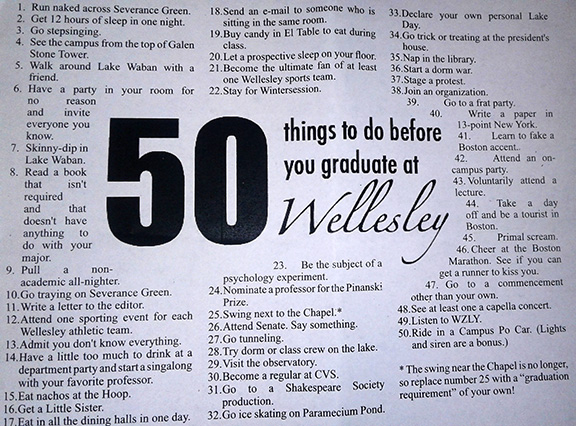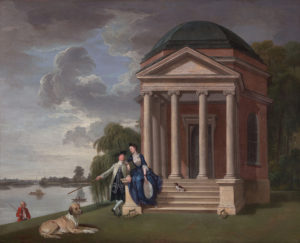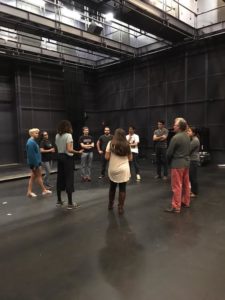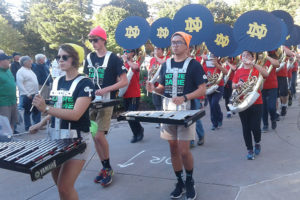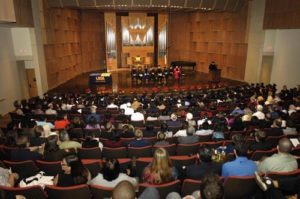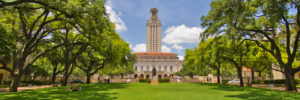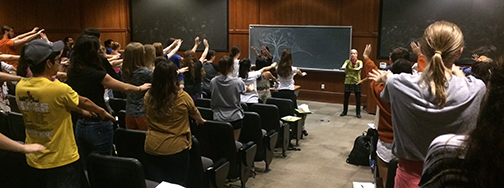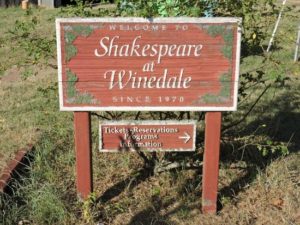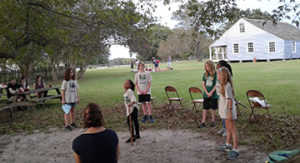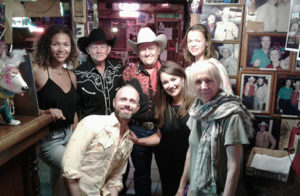 Venue No.3 on our tour is back in Indiana, at Valparaiso University —about an hour west of Notre Dame. The vagaries of the timeline system here means that we are now six hours behind the UK, not five. Valparaiso, in Porter County, is a town of about 30,000 people and about 4,000 students (3,000 of them undergraduates) and the name apparently means “Vale of Paradise” in Spanish, so named after David Porter (founder of Porter County), who fought in the 1812 Battle of Valparaiso in Chile. It’s not where the overture comes from, but it obviously meant enough to Mr. Porter. To my mind, it has more echoes of Milton Keynes: it has a roundabout (a great rarity so far on our travels and one that bemused the locals when it was first put in); it has a stillness to it.
Venue No.3 on our tour is back in Indiana, at Valparaiso University —about an hour west of Notre Dame. The vagaries of the timeline system here means that we are now six hours behind the UK, not five. Valparaiso, in Porter County, is a town of about 30,000 people and about 4,000 students (3,000 of them undergraduates) and the name apparently means “Vale of Paradise” in Spanish, so named after David Porter (founder of Porter County), who fought in the 1812 Battle of Valparaiso in Chile. It’s not where the overture comes from, but it obviously meant enough to Mr. Porter. To my mind, it has more echoes of Milton Keynes: it has a roundabout (a great rarity so far on our travels and one that bemused the locals when it was first put in); it has a stillness to it.
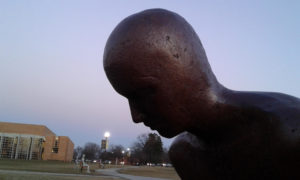
Borders, an acclaimed sculpture installation by the noted contemporary Icelandic artist Steinunn Thórarinsdóttir
The university has a number of statues around the campus, Antony Gormley-like silver and bronze figures that remind me of Milton Keynes’ finest cows as you enter the town. Learn more about the installation at Valparaiso University’s Brauer Museum of Art.
Valparaiso is a regular stop for AFTLS tours, so you can imagine the welcome we got. They were ready for us too, having 35 classes lined up, on subjects ranging from macro-economics to the parables (I knew that hotel Gideon Bible would come in useful one day), from Antigone to community workshops, from nursing to the theological imagination. And yet, to be honest, it’s often the unusual subjects like these that produce surprisingly rewarding results. Jack gave a class to economics students and, immediately realizing that his lesson plan would be difficult to make work in the circumstances, he cleverly came up with a whole new idea on the spot, getting the students to work together to put forward a pitch for their own theatre company, how they would make it work financially and what would be its USP (unique selling proposition), etc.
“…this practical approach to stories and to text often helps the students to look at these works in a new and enlightening way, and it highlights the value of drama and play that goes way beyond only the interests of a theatre major.” — Roger May
 When I did my class on the parables, acting out our version of The Prodigal Son, we improvised the story and set it on a present-day ranch. When the younger son left the ranch, taking his share of the family money, his first temptation was, apparently, to head straight for Disney World. Then Epcot. Then, when he was lured to some bars by people interested only in his money, I tried to lead the students to ‘darker entertainments.’ “What could they be?” I asked them. A small group shouted back “Karaoke”! Not exactly what I meant…
When I did my class on the parables, acting out our version of The Prodigal Son, we improvised the story and set it on a present-day ranch. When the younger son left the ranch, taking his share of the family money, his first temptation was, apparently, to head straight for Disney World. Then Epcot. Then, when he was lured to some bars by people interested only in his money, I tried to lead the students to ‘darker entertainments.’ “What could they be?” I asked them. A small group shouted back “Karaoke”! Not exactly what I meant…
By the time we got to the end of the story, we had put flesh on the bare bones of the story in the Bible (albeit with some slight twists) and taken time to examine the characters’ feelings and motivations. And, at the end of the class, a theology major came up to me and said “You know, I’d never stopped to think about how the son felt when he returned home. And it’s made me look at this parable and other parables, in a new way today. Thank you for that.” I say this not to blow my own trumpet (or those in Jericho) but to blow the trumpet of this company; this practical approach to stories and to text often helps the students to look at these works in a new and enlightening way, and it highlights the value of drama and play that goes way beyond only the interests of a theatre major. Funny, though, how often these improvisations seem to lead to Disney, or to Jedi Knights, or to the Kardashians…
There remains, on our travels, a feeling that we are definitely Brits abroad. I am still struggling with the restrooms here. For a start, I was dumbfounded the other day to find a TV in the restroom – previously the only safe haven, pretty much, that I had managed to find in public spaces in America. And then, of course, those automatic flushing toilets. The other night I was sitting down in my cubicle when my phone slid out of my trousers onto the floor. I leant forward to pick it up and, no sooner had I done so than the toilet assumed I had vanished and flushed away. Well, that’s the closest I’ve come to a bidet on my travels, that’s for sure…
The British accent, too, still leads to odd situations. The other day, no sooner had we opened our mouths but the taxi driver said “So, you met the Queen?” And I swear Will was presented with a take-away cup of coffee with a curtsey the other day…
Everywhere we go, we are greeted with “How’s it going?” It took me a while to realise that Americans don’t want an answer to this – it’s really just another way of saying “Hi.” I, of course, take a perverse pleasure in answering as if they genuinely want to know how my life is going. When a hotel desk clerk in Valpo, already in the middle of a conversation with another guest, greeted my return at the front door with “How’s it going?”, I couldn’t resist taking the perverse pleasure of replying. “Not bad, thanks. I’ve just given a class on theological imagination with particular reference to the dead letter. How about you?”. There followed a confused stand-off as nobody quite knew with which conversation to resume.
By the way, for those of you who read last week’s blog, I’m convinced that Timmy has followed us. Not only did I fall through my bed as all the slats fell out but decided against changing rooms when I discovered that Jack’s tap water ran red and Jas and Sarah were sharing their rooms with stink bugs. Thanks Timmy.
And so to the show. The theatre was very well-equipped and the tech was led by Eric and Danny. Danny, an acting student new to his stage management duties, could not have been more helpful and worked hard to look after us. And the audience were very appreciative—apparently they get professional productions here only rarely and the show was very well-attended.
And it’s a treat to meet some of the audience afterwards. They often come up with the most specific thoughts; on Saturday someone came up and said “I liked the way you paused in the middle of Mercutio’s ‘love was blind’ line; I’ve not seen that before”. It’s impressive when they pick up on details like that. Of course, I’m fully aware that, by talking about it, that moment is now never going to work again. It’s rather like when someone says how well the timing works with a funny line in a play; once thought about, it’s never quite the same…!
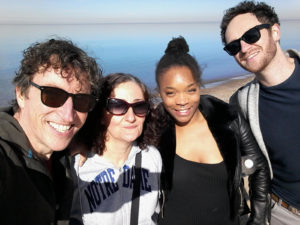
Roger May, Sarah Finigan, Jasmeen James, and Jack Whitam catch some sun on the shore of Lake Michigan.
Sorry to be very British here, but we’ve been so lucky with the mild weather, and our day off after Valpo was no different. (I don’t think Punxsutawney Phil knew what he was talking about a couple of weeks back when he predicted another six weeks of winter.) We headed for the Indiana Dunes on the edge of Lake Michigan and stood by the endlessly impressive lake, skimming stones and soaking in the sheer expanse of it all – the northern end of the lake is over 300 miles away. Our skimmers didn’t quite get to the other side.
Next up, Nashville and Vanderbilt University. (Timmy, you’re not invited.)
—Roger May (Wednesday, February 22, 2017)

